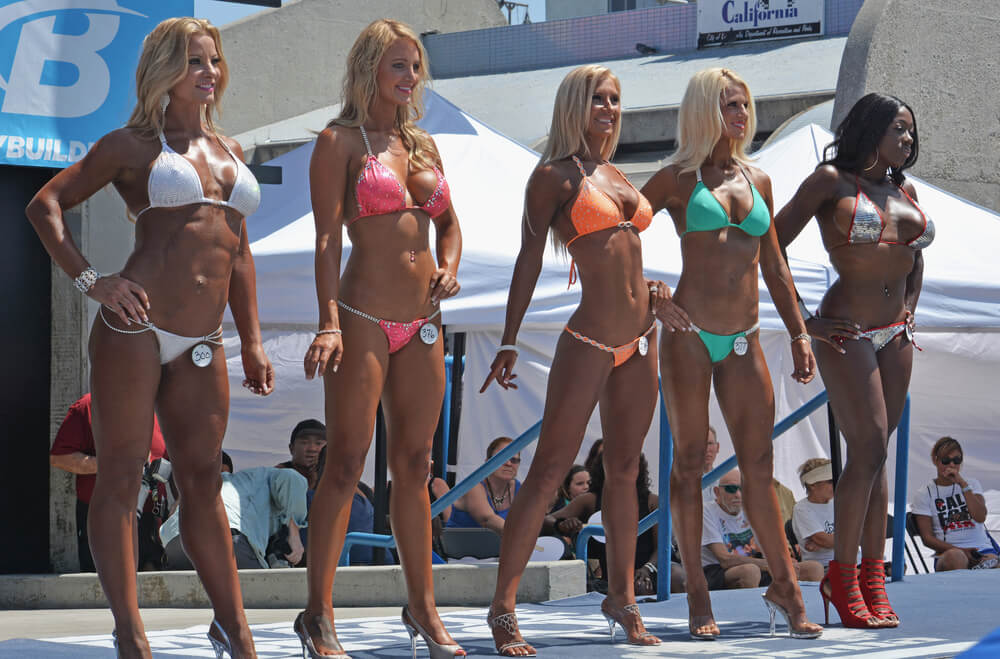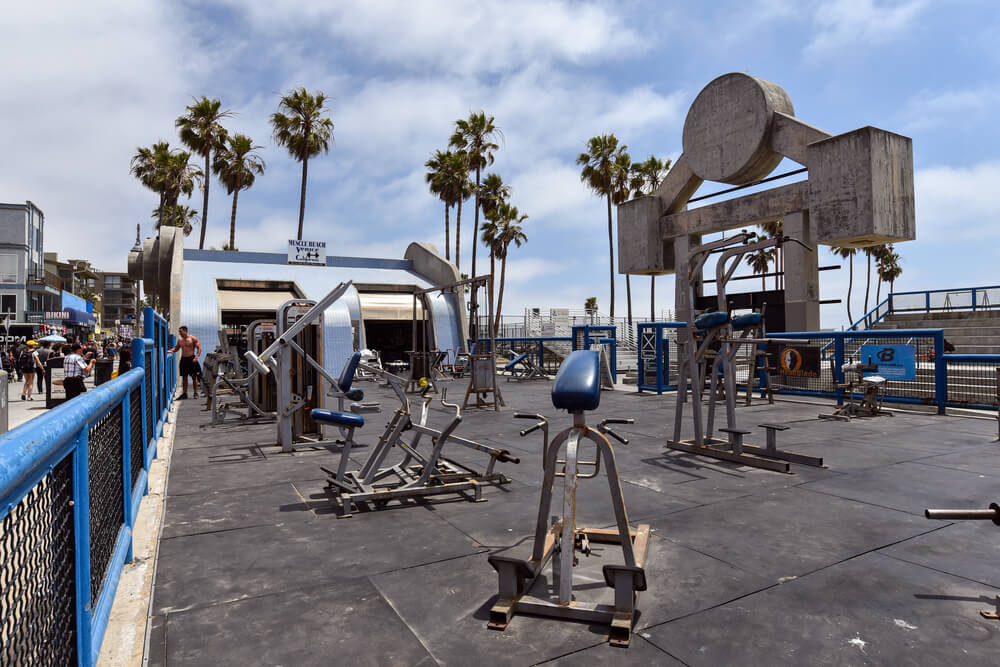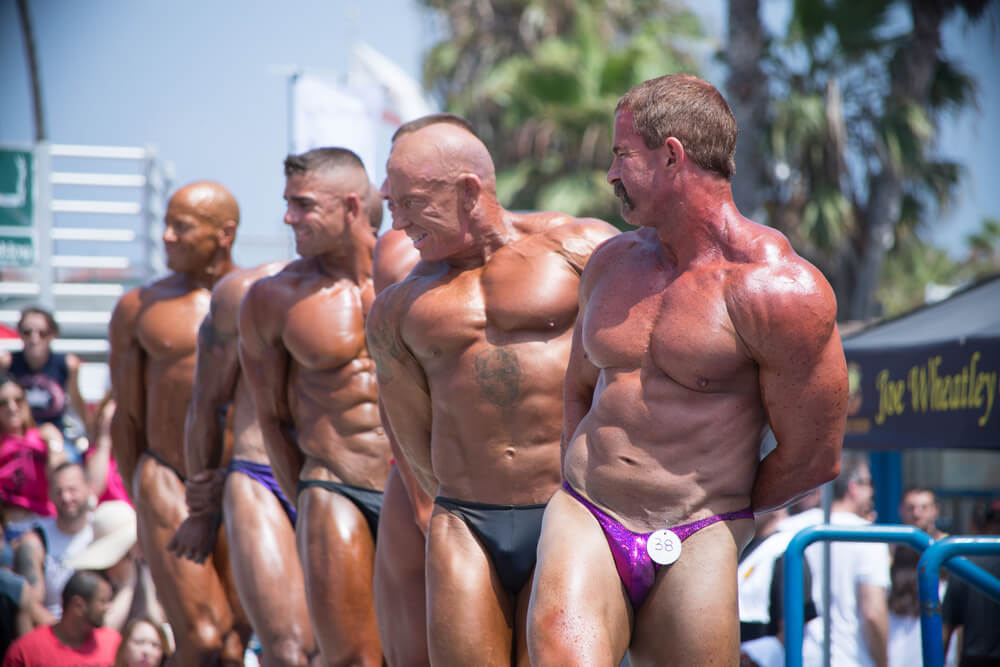
In the States, everything sounds more exotic and fit when referencing California and the West Coast. Whether talking about LA Fitness, the West Coast Diet or simply referencing cities like Santa Monica or San Diego, there’s just something about California that makes people want to work out.
Sure, it’s probably the year round summer and the need to look great all year long (thankfully in the Midwest, you can hide the cheese curd and buffalo wings weight during the winter).
But that’s not just a thing for the U.S.
There are places all around the world that look to California as a fitness capital. Take China, for example. The very first California Fitness opened up in Hong Kong. Not exactly California, but hey, Chinese food in the US isn’t exactly authentic Chinese food either (there’s a reason it’s called New York style).
So maybe you’re planning on visiting the Far East and want to maintain your workout regimen, or you’re just interested in learning about foreign gyms.
Whatever it is, we’ve got you covered with answers on the rise of California Fitness.

The Beginning Of California Fitness
The very first California Fitness location opened up in Hong Kong back in 1996. Of course, this was a year before the British handed Hong Kong back over to China.
Whether or not “California Fitness” would have received the same name after is hard to tell (most likely, but hey, you never know how politics work these days). Since the original opening though, California Fitness has spread out to other areas of Asia, although it’s still mostly a Hong Kong-based gym.
Currently, there are nine different California Fitness locations within Hong Kong, the most of any other country. Mainland China has three current locations, while Singapore boasts four locations. Of course, as the gym is only around 20 years old, it simply hasn’t been around for that long when compared to other major fitness chains. Of course, it has partnered and merged with other fitness centers, including 24 Hour Fitness Worldwide (more on this in a bit).
What is rather interesting is that beyond Hong Kong and Mainland China (which makes sense) are the four locations in Singapore.
Singapore, in terms of geography, isn’t anywhere near China (outside of both being in Asia). There are a half-dozen different countries separating Hong Kong and Singapore, and the island city-state of Singapore is smaller than Hong Kong. But now with four different locations, it is a growing chain in the business powerhouse country.
So for business travelers who move between Hong Kong, Beijing, and Singapore, having the gym here makes a bit more sense.

So Really, Why Hong Kong?
The story itself as to how California Fitness came into existence is somewhat unusual. A Canadian by the name of Eric Levine created a smaller yet popular chain of fitness clubs throughout California. However, as regional gyms grew in popular (we’re looking at you, LA Fitness), Eric went on to sell his gyms to the growing mega gyms.
However, he did not want to simply opt out of the gym industry.
He seemed to enjoy it (and he made a considerable amount of money off of it), so he decided to take his gym creation tactics over to Asia, where he opened the gym first in Hong Kong.
Of course, as Hong Kong was still under British control at the time, it was a bit easier to move from Canada to the United States to Hong Kong.
With his foot in the Asian market, he then looked for other regions to expand to. He spread out to Singapore simply because of the valuable market, although it did somewhat spread his business practice thin (it’s not possible to charge the same gym membership fees in Vietnam or Cambodia as what a gym can charge in Singapore, so this is a major reason as to why the brand California Fitness only opened in Hong Kong, China, and Singapore).
According to Forbes (2008), after selling his first fitness chain to 24 Hour Fitness (a trend that seems to continue later on), he visited Hong Kong in 1996 and saw that people loved designer, name brand goods, but there wasn’t a single major gym, so he decided to start one up.
Of course, the 3,000 square foot location also came with a $2 million a year rent.
24 Hour Fitness Worldwide
Alright, so you may not have heard of “California Fitness” before (unless of course you’ve done some business or traveling throughout China).
However, you’ve more than likely come across some of the gyms California Fitness is partnered with.
In fact, according to membership numbers, 24 Hour Fitness and the associated fitness centers makes up the largest gym in the world (in terms of total gyms it is third). 24 Hour Fitness is actually based out of California in Carlsbad (which is almost half-way between LA and San Diego). In fact, 24 Hour Fitness is the company that created the television reality show “The Biggest Loser.”
There are a handful of other 24 Hour Fitness gym operations open throughout Asia.
This includes the California Wow Experience, which is open throughout Thailand (primarily in Bangkok, Chiang Mai in the north and Pattaya in the south). There is also a Celebrity Fitness gym chain connection that has locations throughout Singapore, Indonesia, Malaysia (the two neighboring countries of Singapore) and India. As these different chains are all part of 24 Hour Fitness, the different gyms are not generally open within the same regions.
While both have a few gyms located in Singapore, there is very little crossover.
The Signature Clubs
In order to help bring in more attention and attract new gym members, California Fitness partnered with movie superstar Jackie Chan and basketball player Yao Ming to open up specific gyms in different areas.
These gyms were branded with the individual’s names to do so. The Jackie Chan gyms were named after in Hong Kong and Singapore (Hong Kong being where he is most popular).
The Yao Ming clubs were all located in Mainland China, although today all of the specially named clubs are no longer named after the individuals and have reverted back to California Fitness clubs (as the younger generation of gym members may no longer have a connection with Yao Ming and his time in the NBA).
Recent Troubles
In recent years, California Fitness and its underlying brand, JV Fitness, have run into a host of different problems.
California Fitness started to shut down locations in Singapore, mostly due to the financial burdens caused some lawsuits.
The cost of real estate in Singapore is at an extreme premium, as it is one of the most expensive cities in the world with regards to real estate (it is a city-state after all, so there’s not exactly room to expand outward), so when a company has to pay out tens of millions of dollars in legal fees, it’s going to lead to major problems with the gym, which is why unfortunately it went on to shut down its Singapore gym locations.
Oh, remember Eric Levine?
So it’s not exactly clear as to when he moved on from California Fitness. Records regarding this, according to Singapore’s The Straits Times (2016) are hazy at best. However, at some point, likely when it started to merge with 24 Hour Fitness Worldwide, Eric exited the gym chain and moved on.
But in recent years, California Fitness has, unfortunately, run into more trouble. Under the JV Fitness brand name (a company that has a business registration address in the British Virgin Islands… the chain has seen some customer relations problems).
Some customers in Singapore said they were “pressured” into signing(who’s to say it’s the truth_, which brought some watchdog groups in. Of course, it’s rather obvious watchdog groups are far more interested with that in Singapore than in the United States (those gyms sure do love to apply pressure to you when visiting or taking the short gym trial).
Of course, Singapore doesn’t screw around when it comes to stuff like that. After all, you can be hit with heavy fines simply for chewing gum or jaywalking (just takes one politician to step in gum for the last time to bring about new laws).

California Wow
Eric’s California Fitness may no longer have its same presence in Hong Kong and Mainland China as it once did, but he went on to work with 24 Hour Fitness to create the California Wow chain.
He learned a few things about running gyms in Asia. With California Fitness, he found that while Singapore and Hong Kong residents tend to have more income to spend on gyms, the rent and cost to maintain such a gym is out of this world.
Any small issue can bring the entire system crashing down.
That’s why California Wow is focused on areas such as Thailand, where it is far less expensive to operate such a location, yet when opened in the downtown business areas of the major cities, there are still plenty of residents who are interested in a large, chain gym that offers the fitness potential of a “California” club.
Singapore overall has stricter laws and guidelines. These guidelines are watered down significantly in Thailand. In Thailand, the sales crew for California Wow work outside of the gym itself and will approach anyone who comes within walking distance.
They attempt to bring individuals into the gym and, according to the 2008 Forbes article, are “hard to shake.”
Should they receive a phone number, they will call constantly, providing special offers to try and bring the individuals in, I mean what gym doesn’t do that these days?
Conclusion
Let’s face it, running gyms in Hong Kong and Singapore are not cheap at all. This means gym memberships are not cheap either (it cost gym goes back in 1996 a $500 membership fee and $90 a month to go to the very first California Fitness location in Hong Kong).
Sure, when looking at gym membership fees in Hong Kong it should make you feel better about whatever you’re paying right now, it simply shows that while there is the market for such a gym, and that people are willing to pay for it, any kind of monetary issue can cause problems, which is exactly what happened with California Fitness in Singapore.
This kind of an issue could have likely been prevented by knowing the strict regulations in Singapore. Running a business in Singapore is a much different animal than most other countries.
However, failure to take these into account led to the downfall of California Fitness. Eric Levine though is still running gyms with very similar names, and with the backing of 24 Hour Fitness Worldwide, including California Wow, he learned to adapt.
The gym uses almost exactly the same marketing and recruitment strategy, only it separated itself from the financial issues of California Fitness and opened the gyms up in Thailand, where regulations are not as strict on harassing pedestrians walking past (if you’ve ever been to Thailand, you know this for a fact). It does open up an interesting window into the world of gyms and the expansion of fitness clubs in Asia, which has lagged a bit in terms of gym memberships when compared to other countries around the globe (in 2008, 15.7 percent of Americans were members to a gym, while just 2.3 percent of residents in Mainland China were).
So the market is there.
-Terry Asher
Terry Asher
Latest posts by Terry Asher (see all)
- Better Family – Product Review Liquid Daily 2 oz - Dec 16, 2024
- Post-Workout Recovery: The Key to Optimal Performance - Nov 25, 2024
- Pre-Workout Supplements – Everything You Need To Know - Nov 18, 2024











[…] via- https://gymjunkies.com/california-fitness/ […]
[…] 3, 2018 Facebook Twitter Google+ Pinterest […]